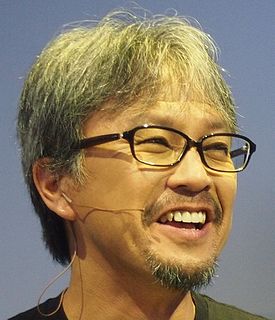A Quote by Friedrich Nietzsche
Of all evil I deem you capable: Therefore I want good from you. Verily, I have often laughed at the weaklings who thought themselves good because they had no claws.
Related Quotes
It’s true that someone will always say that good and evil don’t exist: that is a person who has never had any dealings with real evil. Good is far less convincing than evil, but it’s because their chemical structures are different. Like gold, good is never found in a pure state in nature: it therefore doesn’t seem impressive. It has the unfortunate tendency not to act; it prefers, passively, to be seen.
Evil is easily discovered; there is an infinite variety; good is almost unique. But some kinds of evil are almost as difficult to discover as that which we call good; and often particular evil of this class passes for good. It needs even a certain greatness of soul to attain to this, as to that which is good.
It [the Civil War] was a heroic struggle; and, as is inevitable with all such struggles, it had also a dark and terrible side. Very much was done of good, and much also of evil; and, as was inevitable in such a period of revolution, often the same man did both good and evil. For our great good fortune as a nation, we, the people of the United States as a whole, can now afford to forget the evil, or, at least, to remember it without bitterness, and to fix our eyes with pride only on the good that was accomplished.
In the story of the Creation we read: ". . . And behold, it was very good." But, in the passage where Moses reproves Israel, the verse says: "See, I have set before thee this day life and good, and death and evil." Where did the evil come from? Evil too is good. It is the lowest rung of perfect goodness. If you do good deeds, even evil will become good; but if you sin, evil will really become evil.
When you see evil do not form ideas that are in the likeness of that evil; do not think of the evil as bad, but try to understand the forces that are back of that evil—forces that are good in themselves, though misdirected in their present state. By trying to understand the nature of the power that is back of evil or adversity, you will not form bad ideas, and therefore will feel no bad effects from experiences that may seem undesirable. At the same time, you will think your own thought about the experiences, thereby developing the power of the master mind.
Later, with time, I learned that although all men are capable of good and evil, the worst among them are those who, when they commit evil, do so by shielding themselves in the authority of others, in their subordination, or in the excuse of following orders. And even worse are those who believe they are justified by their God.
But why doesn't the Gospel ever say that Christ laughed?" I asked, for no good reason. "Is Jorge right?" "Legions of scholars have wondered whether Christ laughed. The question doesn't interest me much. I believe he never laughed, because, omniscient as the son of God had to be, he knew how we Christians would behave. . . .






































